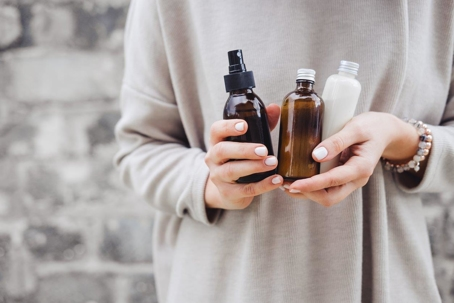The video showcases the dedicated team of attorneys at Fulmer Sill as they engage with clients and collaborate in their Oklahoma City office. Scenes highlight their commitment to providing top-notch legal services in their local community.
Hair Straightening Products Linked to Uterine Cancer, Prompting Lawsuits

Chemical hair straightening products have been linked to an increased risk of uterine cancer. A lawsuit has been filed against L’Oréal, and it alleges that the company knew of this risk for years without notifying consumers. Based on the large number of similar products from other companies, the L’Oréal lawsuit is likely to be the first of many.
L’Oréal Hair Straightener Lawsuits
In 2018, a Missouri woman was diagnosed with uterine cancer that was severe enough to require a hysterectomy. With no history of cancer in her family, it was eventually concluded that the phthalates in the L’Oréal hair straightening products that she used regularly were the cause of her diagnosis. Even though phthalates are recognized by global health groups as “endocrine disrupting chemicals” that can trigger cancer, many hair product makers still include them in their chemical hair straighteners.
In the lawsuit against L’Oréal, it states specifically that the company knew about the link between repeated phthalates exposure to uterine cancer in 2015. However, L’Oréal did nothing to notify the public and consumers about the risk, which, according to the lawsuit filed in Missouri, is tantamount to fraud and negligence.
Although L’Oréal is the first company that must officially defend itself against a chemical hair straightener cancer lawsuit, it likely will not be the last. Many hair product makers use phthalates in their chemical hair straighteners, and none of them made a real effort to warn consumers or recall those products.
Hair Straighteners Can Double the Risk of Cancer
The National Institute of Environmental Health Sciences conducted a study that involved more than 33,000 women, many of whom used chemical hair straightener products at least four times per year. About 60% of the surveyed women self-identified as Black. The group was selected because women use chemical hair straighteners significantly more often than men, and Black women use the products more often than women of other demographics. Furthermore, it is not clear if the products increase the risk of non-uterine cancers.
Based on the results of that study, women who used the chemical hair straighteners were more than twice as likely to develop uterine cancer than those who did not. Specifically, 1.67% of the survey participants who never used chemical hair straighteners would be diagnosed with uterine cancer between the ages of 35 and 74. On the other hand, 4.05% of women who used chemical hair straighteners often would receive a uterine cancer diagnosis.
This result is being used as a solid foundation for lawsuits against hair product makers. The science seems clear that there is a significant increase in uterine cancer risks when using chemical hair straighteners.
Can You File a Hair Straightener Cancer Lawsuit?
As mentioned, L’Oréal is not likely to be the only hair product company that faces lawsuits or class action litigation for knowingly selling chemical hair straighteners that can cause uterine cancer. The U.S. Food and Drug Administration (FDA) has identified dozens and dozens of products, including non-haircare products, with detectable levels of phthalates. The next step is for more people to reach out to class action attorneys to discover their options and act together.
Fulmer Sill is currently investigating chemical hair straightener product claims and complaints. If you or a loved one used a chemical hair straightener product more than once a year and were diagnosed with uterine cancer, then we would like to hear from you. The product maker could owe you significant compensation, and you could potentially join a class action lawsuit to fight for it. Let us be your legal guides from start to finish, just as we have so many others throughout our years of practice.
Call (405) 510-0077 or contact us online to talk to a chemical hair straightener cancer lawsuit attorney.
Useful Resources



